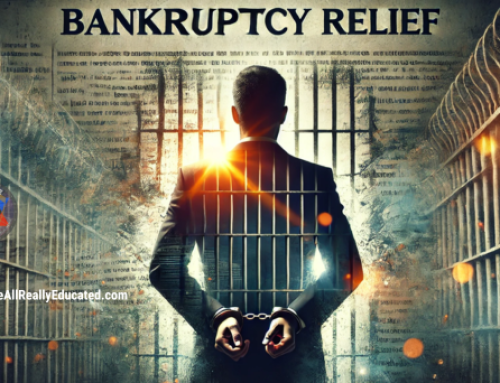UCC 1 claims have gained attention as a potential strategy for individuals seeking to challenge the actions of banks and servicers. In this blog post, we will delve into the power of UCC 1 claims, examining their positive effects and potential disadvantages. By understanding the benefits and drawbacks, individuals can make informed decisions regarding the utilization of UCC 1 claims.
Positive Effects:
-
Avoiding probate: One of the primary advantages of placing a home in a trust is that it can help avoid the probate process upon the homeowner’s death. This means that the property can be transferred to the designated beneficiaries without going through the time-consuming and potentially costly probate court proceedings.
-
Privacy and control: Trusts can provide a level of privacy and control over the distribution of assets. Since trust documents are generally not public record, the details of the trust and its assets can remain private. Additionally, the trust creator can maintain control over the property during their lifetime and specify how it should be managed and distributed after their death.
-
Asset protection: Depending on the type of trust used and the specific provisions in place, a trust may offer some level of asset protection. For example, certain irrevocable trusts may shield the property from potential creditors or legal claims.
-
Speed: This means, your beneficiaries will not have to wait for the probate court process which can be a dragging process. If the home is protected inside a trust, the beneficiaries can take possession of the house sooner than they would have otherwise if the process had gone through the decision of probate court (due to having a Will).
Disadvantages may include:
- Loss of control when the trust is irrevocable: When you establish an irrevocable trust, it usually results in a loss of control because you generally cannot modify the trust terms or alter the beneficiaries. In contrast, if you create a revocable trust, you typically retain the ability to make changes to the trust terms and beneficiaries during your lifetime.
- Costs and complexity: Establishing and maintaining a trust can involve legal and administrative costs. These expenses may include attorney fees for drafting the trust documents, recording fees, and ongoing trust administration fees. Additionally, trusts can be complex legal structures, requiring careful consideration and ongoing management. But do not let this shy you away from creating a trust because this is an investment one will not regret due to the strong asset protection a trust holds.
- Other assets are not asset proof automatically: While placing your house in a trust provides protection from probate for that specific asset, it’s important to note that other assets can still be subject to probate if they are not included in the trust. To fully avoid probate, it’s advisable to transfer your other assets into the trust. Additionally, you may want to consider utilizing estate planning tools such as pour-over wills, payable on death accounts, transfer on death deeds, or joint tenancy deeds. It’s worth noting that certain financial accounts like IRAs, 401(k)s, and life insurance policies allow you to designate beneficiaries, which enables the assets in those accounts to bypass probate and transfer directly to the named beneficiaries.
UCC 1 claims can be a powerful tool in challenging banks and servicers, offering benefits such as probate avoidance, privacy, control, and asset protection. However, it is crucial to consider the potential drawbacks, including loss of control with irrevocable trusts and associated costs and complexity.
If you have any questions or would like to speak to one of our consultants here, we encourage you to book a consultation session via the link here.








Leave A Comment